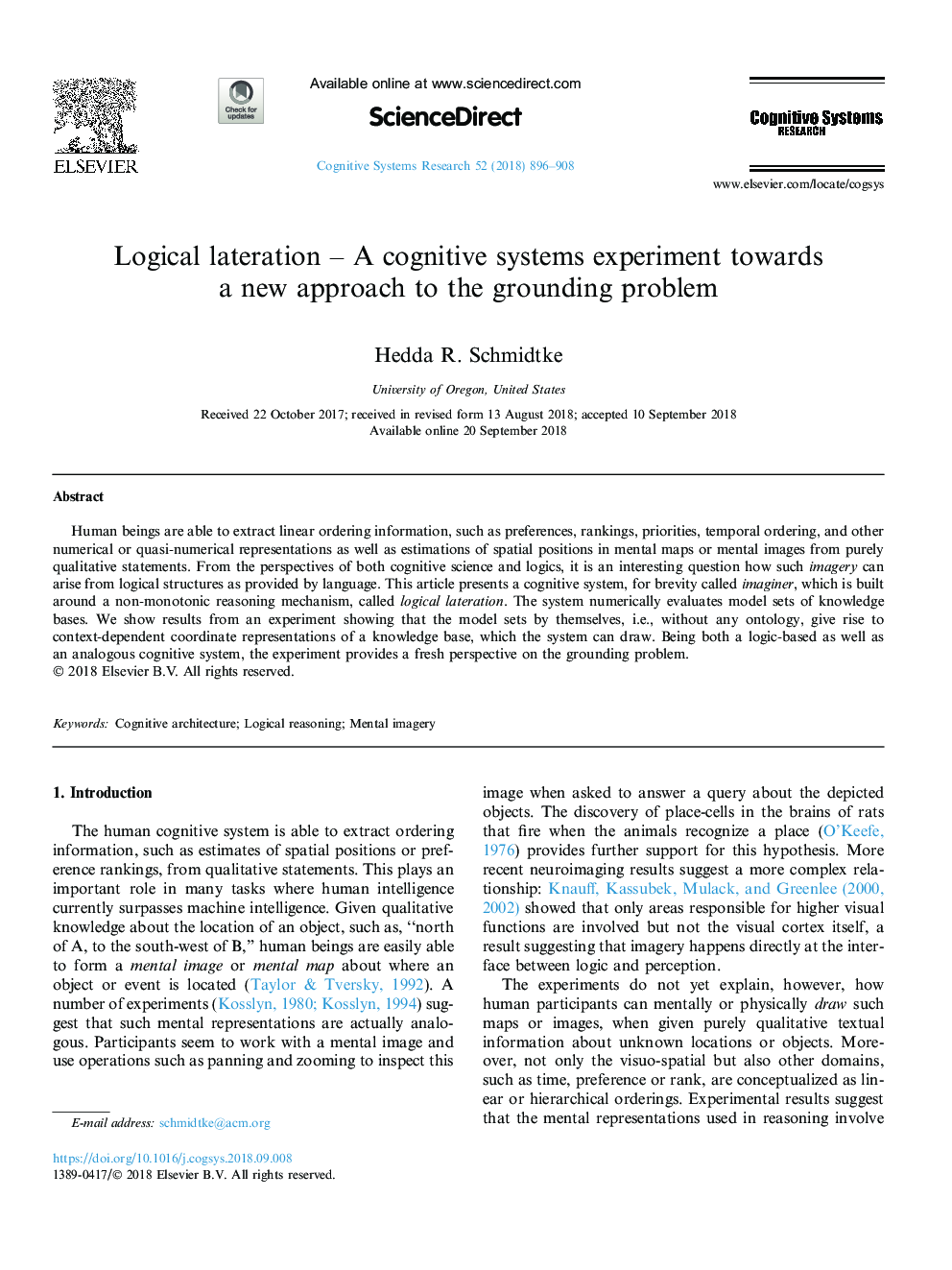| Article ID | Journal | Published Year | Pages | File Type |
|---|---|---|---|---|
| 11002243 | Cognitive Systems Research | 2018 | 13 Pages |
Abstract
Human beings are able to extract linear ordering information, such as preferences, rankings, priorities, temporal ordering, and other numerical or quasi-numerical representations as well as estimations of spatial positions in mental maps or mental images from purely qualitative statements. From the perspectives of both cognitive science and logics, it is an interesting question how such imagery can arise from logical structures as provided by language. This article presents a cognitive system, for brevity called imaginer, which is built around a non-monotonic reasoning mechanism, called logical lateration. The system numerically evaluates model sets of knowledge bases. We show results from an experiment showing that the model sets by themselves, i.e., without any ontology, give rise to context-dependent coordinate representations of a knowledge base, which the system can draw. Being both a logic-based as well as an analogous cognitive system, the experiment provides a fresh perspective on the grounding problem.
Related Topics
Physical Sciences and Engineering
Computer Science
Artificial Intelligence
Authors
Hedda R. Schmidtke,
